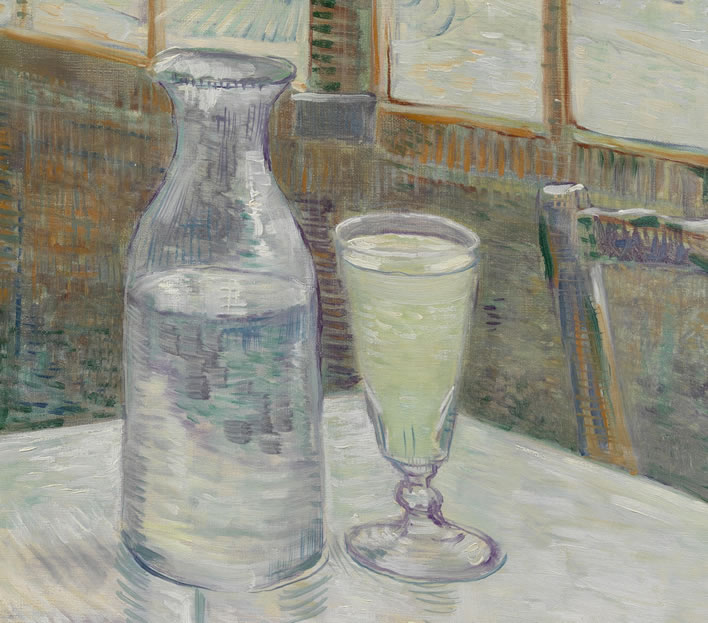The Bastille Spirit
Richard Law, UTC 2016-07-17 08:08
Brendan O'Neill, normally very sound, has been at the Green Fairy[1] again. The people at Spiked were explicitly told to keep the cabinet locked.
Bastille was significant because it was the moment when the masses asserted themselves in France, rudely intruding into the realm of politics and history. In the words of Michel Vovelle, author of La Prise de la Bastille , it showed that ‘the urban masses had been mobilised’. ‘The masses had emerged.’ Yesterday’s bloody assault on a Bastille Day celebration was an attack both on the real, living masses of today and also on the idea of mass politics. It was an attack on people and The People.
…
We need the Bastille spirit more than ever. Where that was a strike for universal values, yesterday’s attack spoke to how far the modern West is sinking into the mire of a murderous identity politics and illiberal sectarianism. Against the cult of grievance, victimology, violence and authoritarianism of Islamists and others, we must assert the principles of universalism, enlightenment and liberty. And then on 14 July 2017, consider going to France, and celebrating Bastille Day publicly and loudly with the good citizens of Nice, Paris and elsewhere.
His 'Bastille spirit' seems to mean the 'mobilisation of the urban masses'. Ah, yes, that spirit.
At the time of the attack on the Bastille the fortress contained seven prisoners: four forgers awaiting trial, two lunatics and one aristocrat incarcerated at the behest of his family for, it is thought, incest. These prisoners were freed. The rumours of the many political prisoners held in the Bastille turned out to be false: the scores, perhaps hundreds of emaciated political prisoners rotting in chains in the dungeons were never found. The later legend-making about mass graves, instruments of torture and so forth was just wishful thinking. We on this blog are generally well-disposed to instruments of torture in the right hands, but we have never thought of using a printing press, which was the particular 'instrument of torture' the Jacobins found in the Bastille after its overthrow.
Close to 100 attackers were killed and just over 70 wounded. The attackers may have been mostly civilians but they were not unarmed. Only one defender died in the battle itself, six were massacred in cold blood afterwards, among them the commander, who was beaten and then knifed to death, his head ending up on the end of a pole – a clear 'strike for universal values'. The attackers did not win: the defenders, mainly disabled war veterans, capitulated after running out of ammunition and water, also deliberately avoiding a further bloodbath.
Using this bloody shambles as a symbol of 'the principles of universalism, enlightenment and liberty' and of resistance to the 'cult of grievance, victimology, violence and authoritarianism' seems quite bizarre, especially when we consider what followed: four years of extreme violence that took the breath of Europe away – the intellectual cheerleaders who had so welcomed that bright dawn of the French Revolution wisely chose to change their opinions after a year or two of the Terror; the soldiers of the Swiss Guard in the Bastille may have been allowed to go back to their regiment, but the story would be different three years later in the Tuileries, when they would be hacked to pieces by those lovely 'urban masses' who had now 'mobilised'; five years of terror, four years of counter-terror, fifteen years of war and slaughter across Europe under Bonaparte, thirty years of repression under Metternich, more revolution, more repression.
In 1879 the French, in agonies of wounded pride after the Prussians had thrashed them decisively in 1871, proposed the date of the fall of the Bastille, 14 July, for their new National Day. Even in that time of patriotic fervour there were many who felt repelled by the thought of taking that bloody and futile moment as the symbol of the French nation. A fig leaf was found: if celebrating the storming of the Bastille makes you nauseous, imagine you are celebrating the The Fête de la Fédération, the four day long pointless party held on 14 July 1790.
Perhaps surrendering the Bastille to those 'urban masses' was quite the wrong thing to do, though it may have seemed humane at the time. Louis XVI and his ministers lacked the resolution to put down these masses, even though they had the means to do so. Had there not been an incompetent ditherer on the throne there would have been bloodshed, but arguably far less than we had in reality when the 'urban masses' took over for a decade.
And finally, Brendan, you seem to have it the wrong was round: the 'urban masses' these days are not promenading with their kids on a balmy evening watching a fireworks display, they are driving trucks into these innocents, shooting up concerts and blowing up whoever happens to be in the wrong place at the wrong time. The time has come for decisive action against the new 'urban masses' before the bloodshed really starts. That may be the real 'Bastille spirit', the true lesson of Louis the ditherer and the Bastille: get the bastards before they get you.
References
- ^ No, not the washing-up liquid: this stuff:

Vincent van Gogh (1853-1890), Café Table with Absinthe, 1887. Image: Van Gogh Museum, Amsterdam.
0 Comments UTC Loaded:
Input rules for comments: No HTML, no images. Comments can be nested to a depth of eight. Surround a long quotation with curly braces: {blockquote}. Well-formed URLs will be rendered as links automatically. Do not click on links unless you are confident that they are safe. You have been warned!